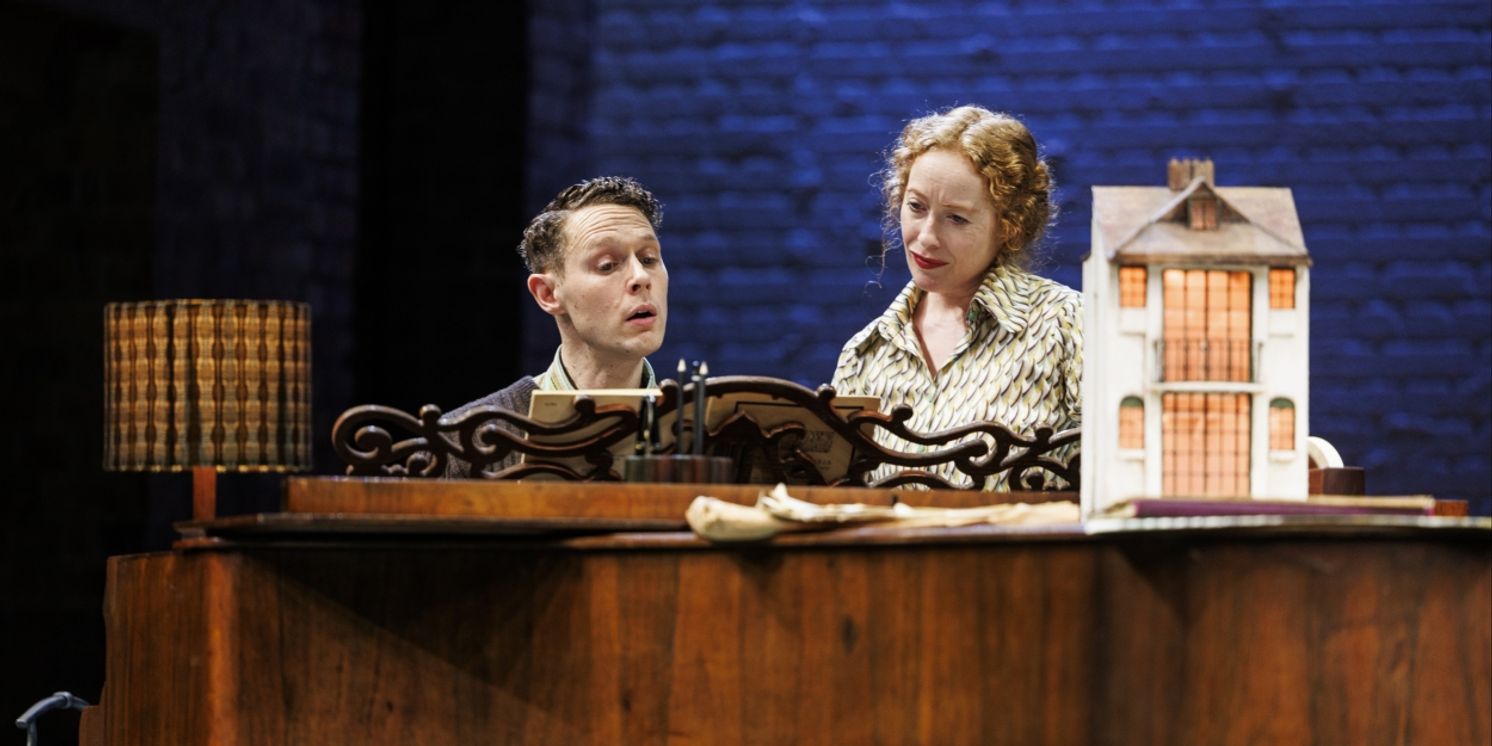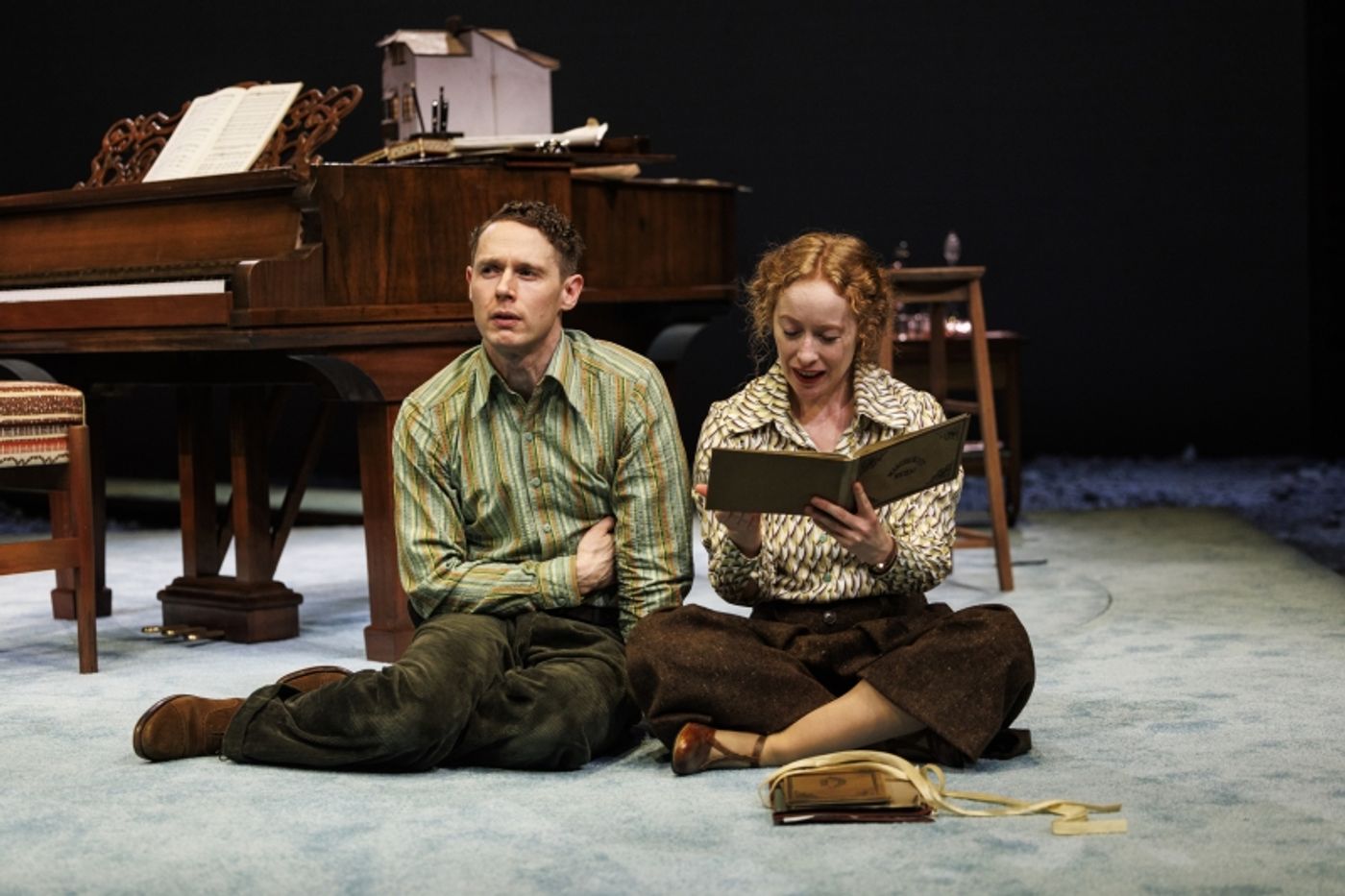Review: BEN & IMO, Swan Theatre, Stratford-upon-Avon
The production runs until 6 April 2024

![]()
“There was something beautiful about all that savagery”
Written by Mark Ravenhill and directed by Erica Whyman, Ben & Imo tells the story of the composition of Benjamin Britten’s (Samuel Barnett) Gloriana with musical assistant Imogen Holst (Victoria Yeates) over a period of nine months in the coast town of Aldeburgh. The play is based on Ravenhill’s BBC Radio 3 presentation, Imo and Ben.
Barnett does a brilliant job playing Britten, a complicated genius who cannot escape the darkness of depression, no matter how much music he composes. He fears that his greatest days are behind him and he feels as though he must fight against those in power, particularly when he risks losing the opera’s performance spot for the Coronation to a ballet. Even in moments of happiness, you can still see Britten’s simmering rage, whether it is in Barnett’s tense shoulders or darkening eyes.
We are introduced to Holst in an almost Mary Poppins-like fashion, coming in with only three bags for a nine-month stay in Aldeburgh. Yeates plays Holst as a serious yet free spirit, travelling the world and connecting with local communities through music. She is dedicated to preserving her father’s legacy, her father being Gustav Holst, composer of the famous "Planets Suite". Holst may be the opposite in personality to Britten, but the two share an incredible bond through their dedication to music, scoffing at the Germans and focusing on composing for the better of England.
The relationship between Britten and Holst is truly one made for a two-hander, with Britten openly acknowledging his flaw of pulling people close and then breaking them when they are of no use and Holst continuing to work with him, regardless of the warnings he gives her. When watching tender moments between the two, we know it is not going to end well but cannot look away, hoping that maybe, just maybe, things will turn out differently this time. It is like watching Eurydice following Orpheus, knowing that he will turn and she will be damned to the Underworld.
The set, designed by Soutra Gilmour, is simple yet effective, with everything taking place within the living room of Britten’s home on the coast where he lived with his professional and romantic partner, Peter Pears. The central set piece, a piano, rotates around on a turntable during scene transitions as Britten and Holst move around furniture to signify the passage of time. The costumes, also designed by Gilmour, make the piece truly feel as though it is taking place in the 1950s, with the passage of time being depicted by the characters putting on and removing coats and changing layers. I particularly loved Holst’s costumes, modest yet elegant, revealing more about the character of Holst without words.
Unfortunately, while there is some good dialogue throughout the show, there is rarely anything outside of the dialogue itself, making the show feel a bit empty compared to other two-handers. I would have loved to see more non-verbal expression, particularly with Britten at the piano, as some of the most powerful moments for me were in between scenes when he was composing Gloriana and the music would clash together in a glorious cacophony. There are also some moments that feel a bit too expositional and others that feel a bit forced, particularly those mentioning the Arts Council and the future of the arts in England.
The sound effects are a bit cheesy at times, especially moments in which the sea crashes up against the home. I would have loved to hear more of Gloriana itself in moments when Britten and Holst were working on it, though I did admire Conor Mitchell’s compositions after reading about how they were influenced by the grand opera in the programme.
The final scenes are some of the most powerful in the showing, allowing both Barnett and Yeates to show off their acting abilities in dialogue packed with fury and heartbreak. There were several moments in which I was flinching in my seat, in fear of what would happen to Holst at Britten’s hand. It is a fascinating look at a relationship that is acknowledged by both sides as abusive, yet the collaboration continues past the play.
Ben & Imo is an interesting insight into the world of musical geniuses. While you can tell it was based on a radio production, which does take a bit away from the stage, both Barnett and Yeates are brilliant actors who allow you to empathise with both Britten and Holst, even during their darkest moments.
Ben & Imo runs until 6 April at the Swan Theatre in Stratford-upon-Avon.
Photo Credit: Ellie Kurttz © RSC
Reader Reviews
Videos


